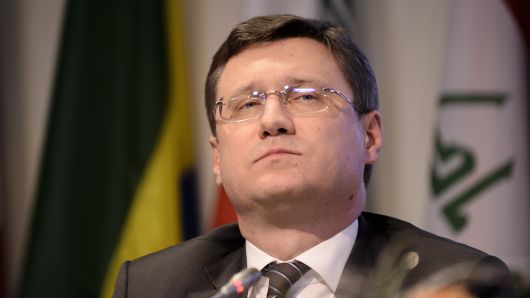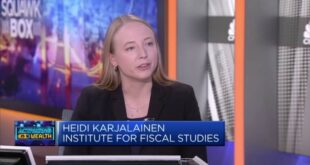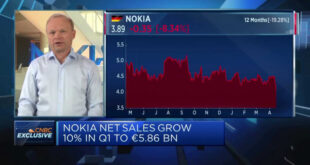
Omar Marques | Anadolu Agency | Getty Images
Russia Energy Minister Alexander Novak pictured at a joint press conference during the 173rd Ordinary Meeting of the Organisation of Petroleum Exporting Countries (OPEC) in Vienna, Austria on November 30, 2017.
OPEC and non-OPEC exporters must stick to a consistent message if they are to avoid exacerbating wild swings in the oil market, Russian Energy Minister Alexander Novak said Sunday.
“There is a lot of volatility in the market. And what’s more this volatility could remain,” Novak told CNBC’s Steve Sedgwick, according to a translation.
“Therefore, right now we shouldn’t be making any hasty decisions. We need to look at the situation very carefully to see how it will develop so that we don’t end up changing our course by 180 degrees every month.”
His comments come shortly after top exporters at the Joint Ministerial Monitoring Committee (JMMC) meeting in Abu Dhabi said they would not shy away from another round of production cuts.
This appeared to an abrupt turnabout from OPEC’s September meeting, when some of the world’s leading oil producers were talking about pumping extra oil onto the market in order to help soothe intensifying supply shock fears.
The group said Sunday it would “continue closely monitoring” oil market conditions, before adding that “new strategies” could be implemented to balance the market in 2019.
Saudi Arabia’s Energy Minister Khalid al-Falih said Sunday that the OPEC and non-OPEC alliance would collectively decide whether reducing global output would be necessary over the coming weeks.
The next full OPEC meeting, when any policy decision will be voted on, is scheduled to take place in Vienna, Austria on December 6.
About two dozen exporting nations began capping their output in 2017 in a bid to drain a global crude glut. The group agreed in June to restore some of that output, and producers with spare capacity have been pumping more oil since then.
 EU News Digest Latest News & Updates
EU News Digest Latest News & Updates


